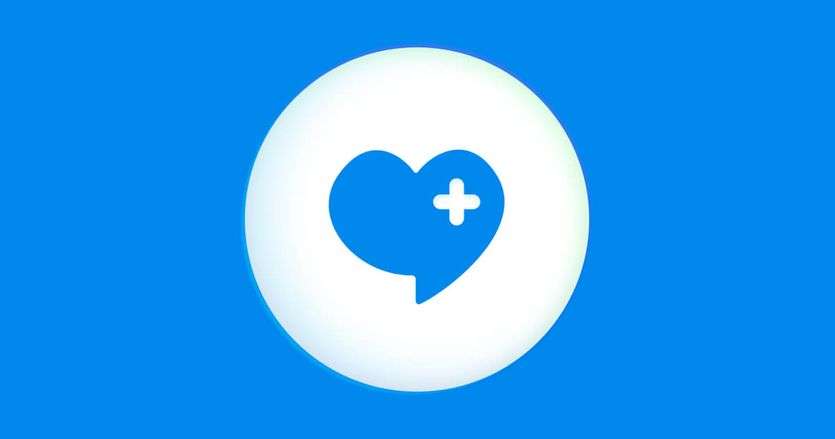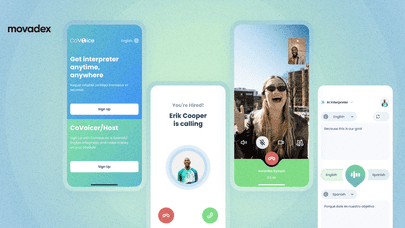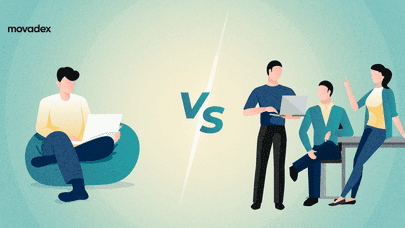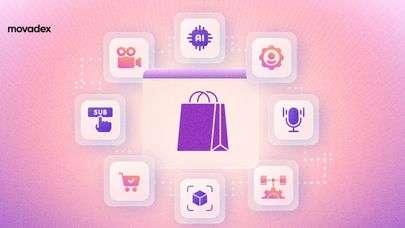The pandemic led to a global disruption in every known industry, but there is one that suffered the most: healthcare. While people started contracting coronavirus, hospital workers started to feel overwhelmed with the number of patients, and don't forget that there are literally thousands of other diseases that had to be treated. Some of them, of course, needed urgent care. To lighten the burden that doctors were carrying on their shoulders, digitalization started to take place.
Introduction
COVID-19 had a massive impact on the world. Despite all the disruption it has caused, it had created new possibilities in the world of telemedicine: most of the non-urgent illnesses had to be taken online, both to increase the convenience for the patient, and lighten the load on the doctors. Most of us never even imagined that the world would plummet into this spiral where everything shuts down, healthcare doesn't know what to do, and everyone has to stay home. Now, healthcare was a very analog experience before 2020 — you had to go and see your doctor personally to get the needed treatment. However, after the first cases of the virus started to show up, the industry started to catch up with the rest and started implementing new ways to help non-urgent cases.
Who Benefits From It?
For the patient, it opens a lot of doors. A whole wide spectrum of specialists suddenly became available, and all the travel costs were eliminated, which started to save people a lot of money. You don't have to waste your time on commuting as well, you fire up your iPad or whatever, and talk to your doctor. For the provider, it allows treating many patients at the same time, keeping interactions and records online. Appointments, cancellations, the waiting line: all gone.
Trends
Obviously, telemedicine is just on its starting line and will continue growing. The pandemic hasn't gone anywhere and it alone pushes the world to digitalizing healthcare even more. When it's eventually gone, I don't think that the need for digital medicine will go anywhere. Besides people who are not mobile enough to always get to the hospital, there are a lot of lazy people (like me) who will always choose to have their appointment online.
Better Apps
We all depend on our apps, and they will continue to grow and adapt to our needs. There is one point that makes telemedicine applications much harder to get right than your ordinary entertainment apps. When you develop such an app, you have to remember that people's lives may be on the line, and everything has to be working perfectly to cater to the ill's needs. That is why we will see these types of apps get only better in the coming years.
Better Communication
Communication between you and your doctor is something that should never be looked down upon or taken lightly. Before healthcare was more analog, it was generally harder for people to communicate everything: being in a hospital may be very overwhelming to people, and they can even forget some of their symptoms. It happened a lot to me and my friends, so that's something that could potentially do harm. Now, all the communication can be digital and from your home, when you won't get anxious or worried too much. Besides, all the info that you'll send the doctor's way will be kept on your record in the app, so nothing will be lost or forgotten. For the doctor, it will cut down a lot of stress. They have to keep a lot, and by that, I mean A LOT of information in their head. Having a dedicated app or a special kind of CRM will help them to clear up their minds from all the patient information, focusing on the results and treatment.
Better Security
Telemedicine fully relies on the digital processing and storage of your data. For keeping it safe, better security protocols have to be implemented. Patient data is something that has to be protected at all costs, as it contains a lot of very sensitive intel on the person and can be used in many different ways against them. Unfortunately, hackers always find a way to do their thing — we know that from video games and a dozen other industries. That's why we will see them putting up a pretty good fight with cybersecurity specialists in the coming years.
Better Mental Health
I have grown to be very open to discussing mental health with not only my friends but my readers as well. Psychological illnesses are just as, if not more, devastating as physical ones. Moreover, long-lasting mental problems can take their toll on your whole body. As a person who struggled with anxiety and depression and sought offline medical help, it puts a smile on my face to see telemedicine grow every day. Most of us don't even imagine how hard can it be to go to a hospital when we have social anxiety, battle panic attacks. Having a psychiatrist right on your phone can and will work wonders for those who won't be comfortable meeting them IRL.
Better IoT Integrations
We don't often think about it, but there are a lot of sensors that can be used for monitoring people's health literally 24/7. Look at smartwatches, they are packed with different tech that can send the data to your doctor for analysis. Even today, the Apple Watch and a couple of its competitors can measure not only your heart rate but your blood pressure. That's not even it! It is that smart, that it can detect abnormal heart rate and advise you to visit a professional. To even think how many lives can be saved with technologies is nuts, and they are only starting to develop.
Better Training
It takes somewhere from 10 to 14 years to become a licensed doctor in the US. It's one of the longest and hardest professions to master, and it comes with a lot of difficult training procedures. Imagine how great it would be to start using all the tech that we have to train doctors, and how much easier and more fun it would be for them. Something like a VR can work wonders, and I know that it is used for this purpose right now, but we're talking about making it global. There are definitely a lot of other technologies that can be used for training, ranging from something as basic as a CRM to something like virtual reality rooms for surgical training.
What's Next?
We will surely see the rise of telemedicine throughout this decade, and who knows what we will see in a year, three, or ten years of time? I think that it will prove to be the best thing for both care providers and patients, as they are so convenient for both of them. I hope to see the rapid growth of digitalization in the healthcare industry, as it will make taking care of your health easier for people with chronic illnesses as well as those who strive for daily healthy lifestyle.




